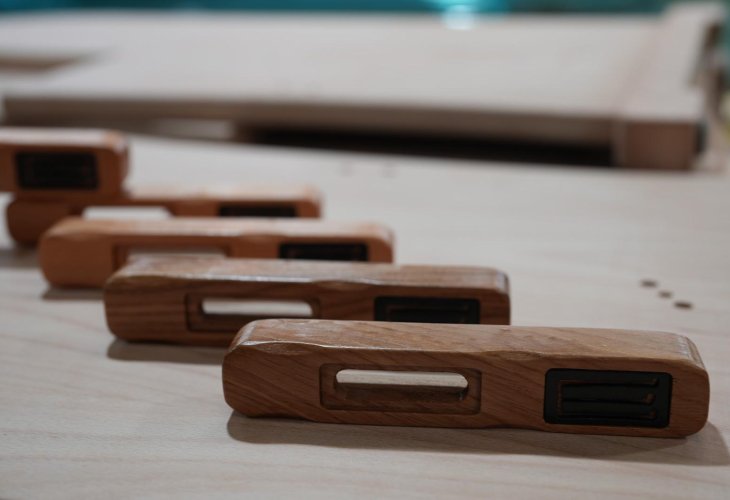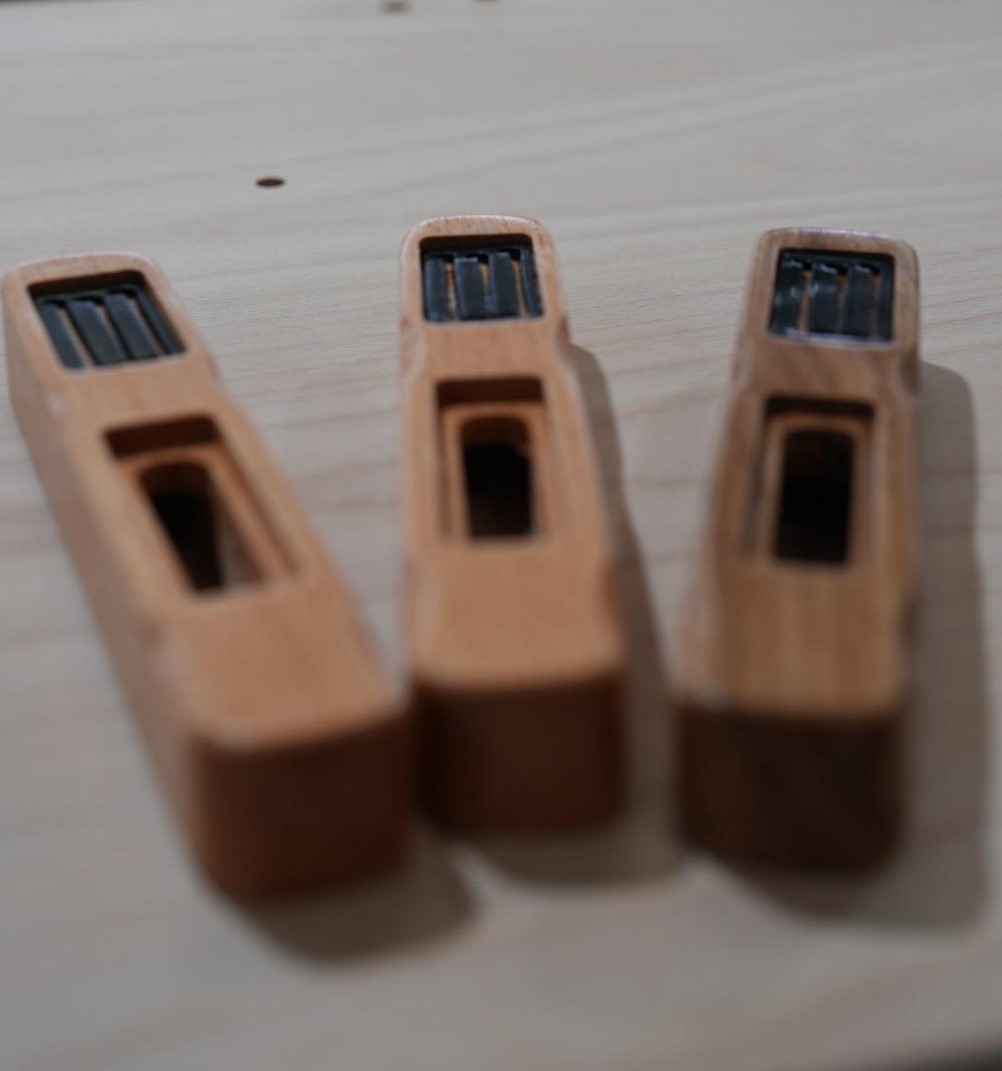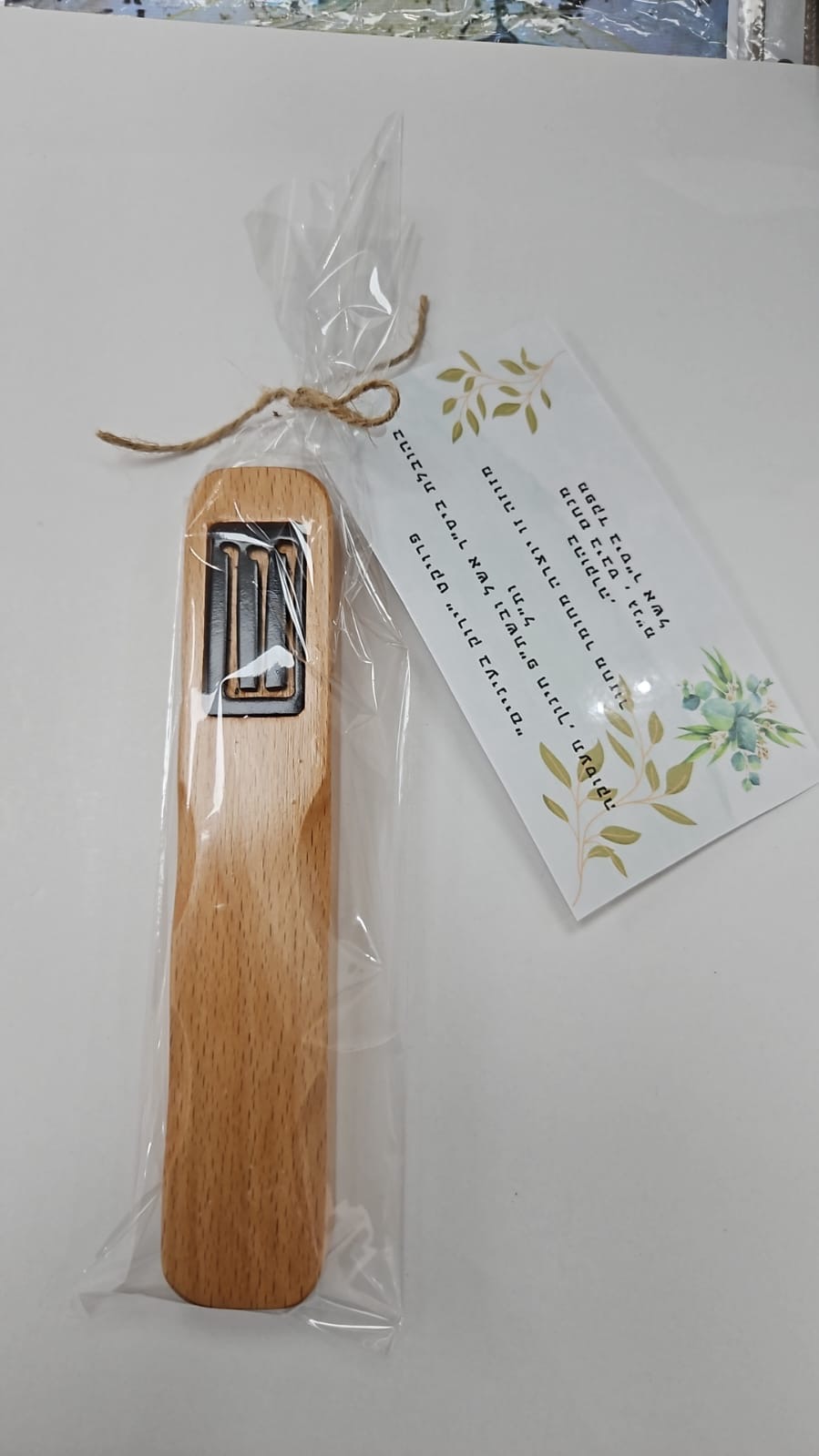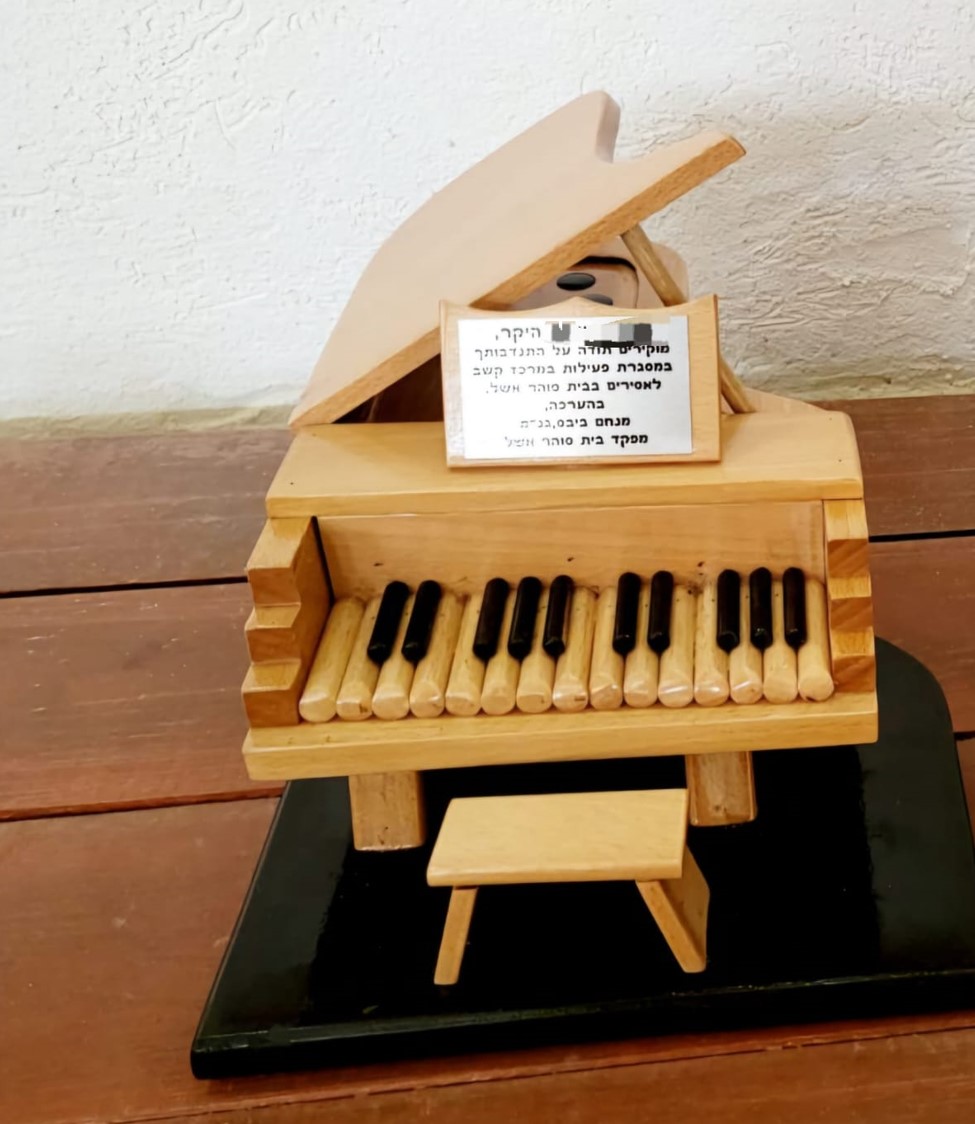A Second Chance: Prisoners Craft Mezuzahs for Displaced Families
At Eshel Prison, inmates are creating unique mezuzahs from recycled materials for families displaced from their homes in southern Israel.

Every once in a while, something truly touching comes along: recycled mezuzahs are being handed over, with great respect, to families displaced from their homes in southern Israel. These mezuzahs have a special story, as they were crafted over recent weeks by inmates serving time at Eshel Prison.
To learn more about this project, we spoke with Sergeant Shlomit Kfir, an education officer at Eshel Prison, who shared fascinating stories about her work within the prison walls.

A Gesture for Homes Yet to Be
"I have worked at Eshel Prison for several years," Kfir begins. "As part of the rehabilitation process, we meet the prisoner in their ward, get to know them, and serve as a reliable figure they can trust. We accompany those who wish to change, and help them with educational processes they may have missed out on previously. They discover their own abilities, turning from people who didn't believe in themselves to realizing their potential. It's worth emphasizing that change doesn't come easy, but we give them a second chance."
Kfir continues, sharing more about the unique mezuzahs: "It all began with a project called 'Green Eyes'. Eshel Prison was selected to represent the southern district as a prison engaged in recycling. The goal is to create art from waste produced within the prison.
Commander Menachem Bibas adopted the project, recruiting a team from the fields of education, logistics, and employment. With the help of an artist, we gathered a group of prisoners to create art pieces from the waste materials of our iron workshops and wood scraps from the carpentry shop. We've made sculptures at the prison entrance, aiming to give hope both to those entering and to those leaving the prison."

With the outbreak of the conflict and realizing many had lost their homes, they expanded the carpentry shop's activities to include crafting mezuzahs as a symbol of future homes. "The mezuzahs are beautifully made from special wood. We distributed them with great appreciation to those displaced, as well as to police stations, Prison Service personnel, and people working with us."
How did the prisoners react to the mezuzahs?
"It was a deeply moving experience. Many prisoners felt helpless witnessing the collective efforts outside. Everyone was donating food baskets, and suddenly, the prisoners had the opportunity to contribute to the community from within the prison. They did it with immense appreciation and love for the people of Israel."
Is it permissible to make a recycled mezuzah from a halachic perspective?
"It's not that the mezuzah itself is recycled," Kfir clarifies. "We used waste wood left from bench-making projects. Incidentally, we also made benches for synagogues. These are large pieces of high-quality wood that we repurposed."
What else do the prisoners create in the carpentry shop?
"We regularly have volunteers. Inspired by the commander, we often give them a small gift for their contribution. There was an artist who taught the prisoners a photography course, and they made a small camera display with a special dedication for him. Likewise, a famous comedian visited us, and they made a small piano for him."
"About three hundred mezuzahs were distributed as part of the project," Kfir notes. "The commander wants to convey this message: If, as a result of this article, people from local authorities or other war-affected areas request more mezuzahs, we will gladly create them."

Lifelong Skills via Mail
At this point, we asked Kfir for a memorable story she'll never forget. She chose to recount the experience with a prisoner she met at the post office, back when she was a teacher in the prison before becoming an education officer.
"I once met a prisoner who couldn't read or write, and I was his first teacher to have an educational connection. Years later, I met him outside the prison at a post office. He approached me and said, 'Do you remember me? Look, I'm paying my electric bill,' and started to read from the letter. This was very meaningful and exciting for him because previously he couldn't read or write. He came to the post office to settle his debt and was using his basic life skills to read and navigate life. I'll never forget it."
"We encounter prisoners lacking social skills. We engage them in activities and provide training. It impacts every aspect of their lives—personal and family. We focus a lot on family. The relationship with their children becomes healthier, deeper. It's not just about 'how was school' with short answers. They learn to truly communicate with their kids."
"We see the children visiting, forming a new connection, a spark of hope. This is very meaningful. A person who thought he couldn't be a good father realizes he can be the best dad—even from prison. We've planted a seed that will grow, and it warms the heart, giving motivation for such challenging work."
As we conclude, we ask Kfir what artistic display the prisoners will make next in the workshop. "We reinvent ourselves all the time," she responds with a smile. "The prisoners themselves often come up with ideas. Recently, they thought of an 'eyes' theme—they captured eyes and produced very beautiful works. Every day brings new and beautiful things, and who knows what's next."

